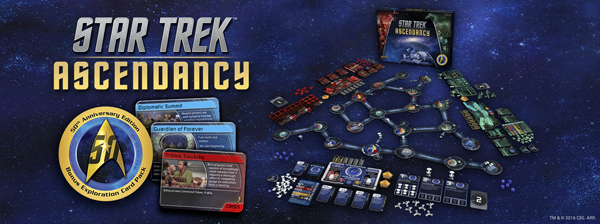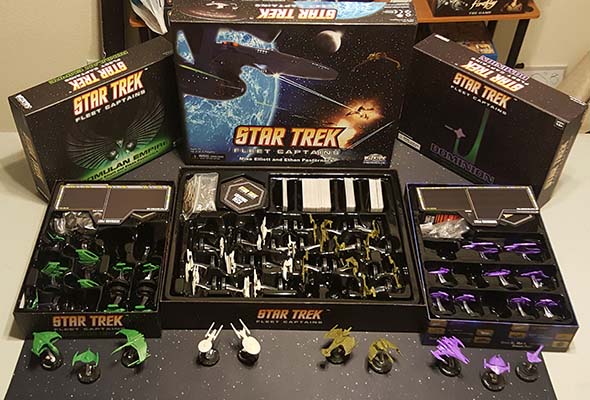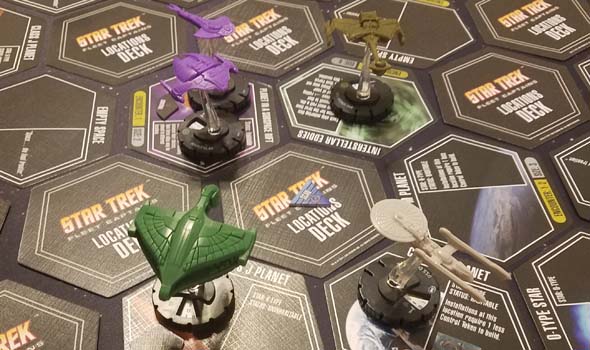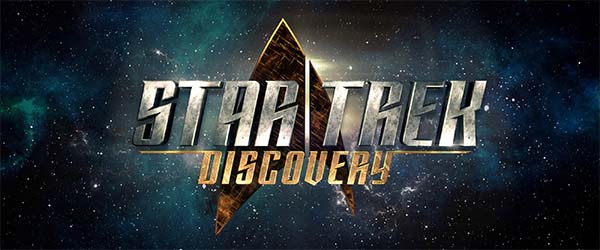
As I had mentioned in my Star Trek: Fleet Captains review, good Star Trek games are few and far between. Perhaps my favorite Trek game of all time is the Windows '98 4-x strategy game Birth of the Federation. BotF, developed my Microprose, was basically a Trek reskin of Master of Orion II. It was buggy, had cheating A.I., suffered from a major memory leak that slowed the game to a crawl after about 100 turns of play, and it didn't include any Original Series ships or technologies. But it did manage to faithfully capture Star Trek's spirit of exploration and discovery by being a game about exploring and colonizing a galaxy.
It wasn't a stripped-down startship combat simulator (Starfleet Command), or a cookie-cutter first-person shooter (Elite Force), or a lazy StarCraft clone (Armada), or an out-of-place dogfighter (Invasion), or a derivative WoW clone (Star Trek: Online). None of those games is terrible. I've played them all, and actually have some rather fond memories with most of them. But none of these games really meshed perfectly with the Star Trek license, and none of them really scratched my Star Trek gaming itch the way that Birth of the Federation did. Apparently, some designers at Gale Force Nine also like Birth of the Federation, because their new board game, Star Trek: Ascendancy, almost feels like a board game version of that classic Trek PC game.
Ascendancy is the first proper 4-x board game using the Star Trek license that I've seen. It certainly blows Fleet Captains out of the water. While Fleet Captains included some token exploration and territory-expansion mechanics as a supplement to the ship-to-ship combat that was the core of the game, Ascendancy is a game that is actually about exploring a procedurally-generated map, colonizing planets, and developing their resources. You can win by conquering other players' home worlds, or by developing your culture up to a specific level.
The final frontier is always in flux
The board of Star Trek: Ascendancy utilizes an interesting and novel modular board. Disk tiles represent planets, systems, and anomalies, each of which is connected by star lanes of varying distances. New systems and star lanes are drawn from a deck as the players explore, and so the board is constantly expanding as you play. It's nothing earth-shatteringly new, but it does have one neat gimmick that I haven't seen in other similar games.
The map will grow and change as the game progresses.
In addition to the board dynamically growing as the game progresses, systems are considered to be "floating" until they become locked in place by being connected to two or more systems via a star lane. This means that leaf systems can be freely rotated around to make room for other tiles to be placed in the play area. I believe this is intended to model the 3-dimensional nature of space. In a more practical sense, it means that the galaxy [map] can (and will) change its shape occasionally, leaving the true distances between locations ambiguous until everything gets locked down. [More]
7b9b6ce0-3004-4c0d-a534-30ff155f91cb|1|1.0
Tags:Star Trek, Star Trek Ascendancy, Gale Force Nine, board game, strategy, 4x, dice, Federation, Romulan, Klingon, exploration, phenomenon, trade, colonization, war, star lane, warp, warp drive, Aaron Dill, John Kovaleski, Sean Sweigart, Star Trek: Birth of the Federation

Star Trek: Fleet Captains has expansions for the Romulan Empire and Dominion.
Even though it is a kind of mediocre game, my friends and I liked Star Trek: Fleet Captains enough that we were excited to try out the game's expansions. There's a nice, episodic feel to the game that does do a pretty good job of capturing some of the feel of the source material. Fleet Captains has two expansions, which each offer a new playable faction: the Romulan Empire and the Dominion. Both expansions revolve around the same two core mechanics (espionage and saboteurs), but each has its own unique methods and techniques for how they utilize those mechanics. Since both expansions have similar features, I'm going to review both expansions together.
The Romulan Empire connives its way to victory
The Romulans are my favorite race in Star Trek I like Romulan makeup. I like their uniforms. I like their ship designs (especially the warbirds). I like their cunning. And I like the depictions of the Romulans in every era of Star Trek, except for Star Trek: Nemesis and Star Trek: Enterprise, which both managed to ruin a good thing. So opening the Fleet Captains box to find no Romulan ships was - of course - disappointing, and the very first thought that popped into my mind (after "Ooh, plastic space ships!") was "I should check if there's a Romulan expansion to this game". Sadly, it was sold out on Amazon, and eBay sellers wanted upwards of $150 for copies. I didn't want a Romulan expansion that badly... But my girlfriend, being awesome as she is, eventually saw the expansion come back in stock on Amazon and immediately ordered a copy for me to surprise me. So as I was getting ready to organize some game sessions to play the Dominion expansion and resigning myself to the idea that I'd never play the Romulans, a shiny, shrink-wrapped copy of the expansion literally showed up at my door step. She's a keeper!

I don't like the monochrome ships, but at least the Romulan ships are the same color as in the show.
The green plastic of the Romulan ship miniatures fits well with the color schemes of Romulan ships in the shows, and the miniatures don't look as dull as the unpainted miniatures in the base game. The only Romulan ships that wouldn't be green would be Original Series Birds of Prey (or borrowed Klingon battle cruisers), which aren't included in the expansion's ship roster anyway. Instead, they included three Birds of Prey from Enterprise. That's a shame to me, since I really like the Original Series Bird of Prey's design - not as much as I like the TNG Warbird design, but the TOS Bird of Prey is up there in my list of favorite ships. I really would have liked to have seen one of the Enterprise Birds of Prey replaced with a TOS Bird of Prey in the roster, and maybe even a borrowed Klingon Battle Cruiser, but no such luck. Ah well... [More]
62e7d974-a66f-4dc9-8815-e176dc78759e|2|3.0
Tags:Star Trek: Fleet Captains: Romulan Empire, Star Trek: Fleet Captains: Dominion, Star Trek, Star Trek: Fleet Captains, board game, expansion, WizKids, Romulan, Dominion, Cardassian, Vorta, Jem Hadar, changling, shapeshifter, espionage, cloak, sabotage, defect, manufacturer defect, customer support, Star Trek: Enterprise, Mike Elliot, Ethan Pasternack
I'm about to do something that has become a rather unpopular thing on the internet -- especially among liberal and progressive-minded people such as myself. I'm about to explain why I consider Rey to have been a "Mary Sue" in Star Wars: the Force Awakens.
I'm not doing this because I want to hate on the movies for the sake of hating them. I'm also not trying to hate on Daisy Ridley, and Daisy, if you read this, I want you to know that I think you did a fantastic job with the material that was given to you. I'm being critical because I want the movies to be better than they are. I have very high standards and expectations when it comes to Star Wars, and I feel that Disney's efforts so far have been sub-par. So much so that I often find myself using phrases like ... sigh ... "to the prequels' credit". I hate having to say that. It makes my skin crawl every time. I'm at a point, however, in which I find myself pointing out merits in the prequels as a point of contrast against flaws that I perceive in Disney's Star Wars films, as if one set isn't better or worse than the other; but rather, that they are just ... different.
I don't hate Rey. I am critical because I want these characters to be better.
So even though this is kind of old news that's been beaten to death for over two years, let's talk about Rey for a moment. And regardless of which side of this issue you fall on, I hope that you read the following with an open mind. And if you disagree, then that's fine. I'm not going to fight you over it.
"Mary Sue" is a subjective qualifier
Let's start with some background. The definition that I use for a Mary Sue is:
A fictional character (often appearing in fan fiction) who is primarily a vehicle for wish-fullfillment (usually being a self-insert stand-in for the author), and who is unjustifiably-competent in multiple fields -- if not everything.
Typically, these characters are good at everything they do. They get along with other established characters exceedingly well (sometimes even being romantically pursued by one or more of the canonical characters). They have few (if any) flaws. They are an idealized character who is essentially a "perfect" character within the fiction. They are also -- pretty much by definition -- characters who are added to a fictional setting long after its initial establishment.
The term "Mary Sue" is derived
from Star Trek fan fiction.
The term originated in Star Trek fan fiction, having been coined in 1973 after the publication of a parody story "A Trekkie's Tale" in the fan magazine Menagerie. This particular story (written by Paula Smith) was about a 15-year-old female character named Mary Sue, and it satirized the unrealistic nature of many characters in other fan fiction stories. Lieutenant Sue was the youngest Lieutenant in Starfleet and was an expert in virtually everything she did. She was "the best and the brightest" of Starfleet.
First off, I want to get one thing straight: whether or not a character is a "Mary Sue" is a subjective opinion. Whether or not any individual reader or viewer considers a given character as a "Mary Sue" is going to depend greatly upon where that individual draws the line between "justifiably-competent" and "unjustifiably-competent". That line will vary from person to person, and from fictional universe to fictional universe. I draw that line at a much different place for Star Wars than I do for Star Trek. In addition, this line is not always a hard or clear-cut line. It might be very fuzzy. The fuzziness of the line will also vary from person-to-person and from fictional-universe-to-fictional-universe. It's all on a continuum. Even within a single fictional universe, one character may be " more Mary Sue-ish" than another character.
Identifying a character as a Mary Sue also does not necessarily mean that the work of fiction (or even the character) is inherently bad. [More]
33b6a16d-ced8-4021-861e-c99f868a24d4|0|.0
Tags:Mary Sue, fan fiction, Star Wars, Star Wars: The Force Awakens, Star Wars: The Last Jedi, Disney, Rey, Daisy Ridley, Luke Skywalker, The Empire Strikes Back, Return of the Jedi, the Force, Jedi, Jedi Mind Trick, James Bond, Harry Potter, Sherlock Holmes, Neo, Superman, Doctor Who, James T. Kirk, Star Trek, Wesley Crusher, Gene Roddenberry, canon, women, sexism, gender, equality, gender equality

I finally got around to watching the entire first half of the first season of CBS's Star Trek: Discovery series. I'm running behind on this show since I don't have a CBS All Access subscription. I've been deliberately avoiding information about the post-hiatus episodes, so information and opinions in this post may be outdated by the time I get around to publishing it. Maybe later episodes have resolved some of these complaints. If so, feel free to ignore such comments, or let yourself be giddy with the dramatic irony. Oh, and feel free to comment, even if you do so with spoilers. I won't be offended or upset.
Before I go into the details, I want to at least try to dispel the idea that I'm just an angry fanboy who is butt-hurt that the series doesn't strictly adhere to continuity. That's come up when I've talked about this show to people in person. So I'm not going to spend this review talking about how the Klingons look different. I don't care that they look different. I've already addressed that. It does bother me that the Klingons also seem to be culturally dissimilar to the established Klingons, but I won't harp on that either. I'm not going to complain about how the uniforms and badges are anachronistic. I got that out of my system before the show even launched. I'm not going to complain that the tech looks more advanced than Original Series tech. These complaints are mostly pedantic and silly. In fact, the aesthetic look of the show is actually one of its strengths.
The visual style is one of Discovery's strengths, even though almost all of it is anachronistic.
I'm also not going to complain about Burnham being Spock's step sister, nor am I going to assert that Spock having a human step sister that we never knew about breaks canon. Spock was always very closed off about his childhood and family. In the Original Series episode "Journey to Babel", Kirk and McCoy meet Sarek and Amanda without having any idea that they are Spock's parents. Heck, this even happens in the second season, after Spock returns home to fight for his arranged marriage in "Amok Time". McCoy even later delights at the revelation that Spock had a pet "teddy bear" as a child -- even though that "teddy bear" had 9-inch fangs.
Kirk and McCoy didn't even know that Sarek and Amanda were Spock's parents.
Even more infamous is when Star Trek V created a half-brother for Spock out of wholecloth. When trapped in the brig, Kirk even says "I know Sybok isn't your brother because I happen to know for a fact that you don't have a brother!" To which Spock responds "Technically you are correct. I have no brother.... I have a half-brother." I can easily see the same exchange being made in reference to Burnham: "Technically, you are correct. I have no sister.... I have a step-sister."
Kirk confronts Spock in Star Trek V, saying he knows Spock has no brother.
So yeah, I don't really have an issue with Burnham being a step-sister to Spock. I would prefer that the writer have not ret-conned Spock's character [yet again] because I feel like this just serves as an excuse to eventually introduce Spock into the series as a cheap cop-out way of increasing fan interest if the show starts to tank -- just like how Into Darkness had Leonard Nimoy just sitting around. The writers have that ace up their sleeve, and it's only a matter of time before they use it.
Spock plays his usual game of semantics to justify his obscurance of the truth.
Instead, I want to talk about how I feel that the show betrays the series' foundation as hard science fiction, and how it actively avoids the very spirit that made the Original Series and Next Generation so beloved.
... [More]
32e74070-f8fa-444a-b6d4-207d5a08322e|4|3.5
Tags:Star Trek, Star Trek: Discovery, science fiction, CBS, all access, streaming television, Sonequa Martin-Green, Michael Burnham, Gabriel Lorca, Jason Isaacs, Saru, Doug Jones, Sylvia Tilly, Mary Wiseman, Harry Mudd, Rainn Wilson, Sarek, James Frain, Klingon, war, allegory, spore drive, parallel universe, mirror universe, Midichlorian, Star Wars, warp drive
Netflix's extraordinary exclusive series Black Mirror recently released its fourth season, and it's premiere episode, "USS Callister", is already being praised around the internet for its spectacular deconstruction of toxic fandom and male-entitlement power fantasies. It deserves every bit of that praise. Jesse Plemons is also deservedly earning plenty of praise for his incredible performance as both a nerdy creeper and for his spot-on Shatner send-up. But Black Mirror, as a series, is so good, in part, because it works on many, many different levels. So I wanted to spend a bit of time praising the episode for some of its other concepts that are getting less attention in the mainstream.
Jesse Plemons puts on a masterful performance as a nerdy office creeper and a spot-on Shatner send-up.
Before I do that, I want to start by saying that I love Black Mirror as a series. It's a modern-day Twilight Zone with a specific focus on the social impacts of technology, and dire warnings about their dangers. Yes, it's pessimistic, but it's bloody brilliant! I haven't sat down to watch every episode yet, and have only seen a handful of episodes from the first three seasons and the season four premiere. That being said, the show's second episode "Fifteen Million Merits" is one of my favorite pieces of television ever. "The Entire History of You", "Be Right Back", and "San Junipero" are also some of my favorites so far.
These episodes (along with "USS Callister") work so well for me because they do such a fantastic job of world-building -- at least, when they are not unrealistically pretending that memories and personality can be replicated from DNA, which is a major (almost story-breaking) stumbling block for Callister. These deep, nuanced worlds create many levels of commentary to unpack. "Fifteen Million Merits" focused on reality TV and pervasive advertising, but it also has some scathing warnings about a culture of body-shaming, obsession over digital merits (read: XBox Live and Steam Achievements), and how corporate avarice could turn a post-scarcity economy into an absolute dystopia.
A friend of mine highly recommended "San Junipero" to me on the grounds that it's a more optimistic episode than many of the others -- even having a happy ending. But my takeaway was not a "happy ending" at all. The fairy tale ending hides a sinister metaphysical question that the text of the episode mostly sidesteps: the mind-body problem. Is the avatar of a deceased person living in San Junipero really that same person? Or merely a copy? Are they one power failure away from being snuffed out of existence? Are people committing suicide based on misinformation from a multi-billion dollar corporation promising that they can live forever in a simulated reality?
Black Mirror's exceptionally well-thought-out worlds always leave sinister nuances to unpack.
"USS Callister", on the surface, appears to be entirely about toxic fandom (along with male entitlement). It is absolutely about that, and it does a fantastic job of presenting it. As a Star Trek fan, I also enjoyed the deconstructive elements about Trek tropes and the unrealistic reverence that fans hold for the series and its established canon. As someone who blogs about Star Trek, Star Wars, video games, and other fanboy topics, I am certainly a target of at least some of this episode's criticism.
As someone who works in the software industry, I recognized the episode also taking swipes at the cult of personality attached to tech moguls like Mark Zuckerberg, Jeff Bezos, Elon Musk, Bill Gates, Steve Jobs, Gabe Newell, and others, and the idea that they may be taking credit and profiting on other people's work, and becoming filthy stinking rich at the expense of the consumers who mindlessly use and venerate their products, all with willful disregard for how those products may be misused. As someone who can't wait to put myself on the waiting list for a Tesla self-driving car, I'm also well within the cross-hairs of that line of commentary... [More]
75a819a5-da6e-4b26-8c2f-fe641b289a76|0|.0
Tags:Black Mirror, Netflix, streaming television, Jesse Plemons, science fiction, anthology, USS Callister, Star Trek, the Twilight Zone, Westworld, technology, artificial intelligence, video game, mind-body problem, ethics, toxic fandom, toxic masculinity, male entitlement, cult of personality, sexism, gender
|

| 12 | | | | | | | 60 | | 11 | | | | | | | 55 | | 10 | | | | | | | 50 | | 09 | | | | | | | 45 | | 08 | | | | | | | 40 | | 07 | | | | | | | 35 | | 06 | | | | | | | 30 | | 05 | | | | | | | 25 | | 04 | | | | | | | 20 | | 03 | | | | | | | 15 | | 02 | | | | | | | 10 | | 01 | | | | | | | 05 |
|